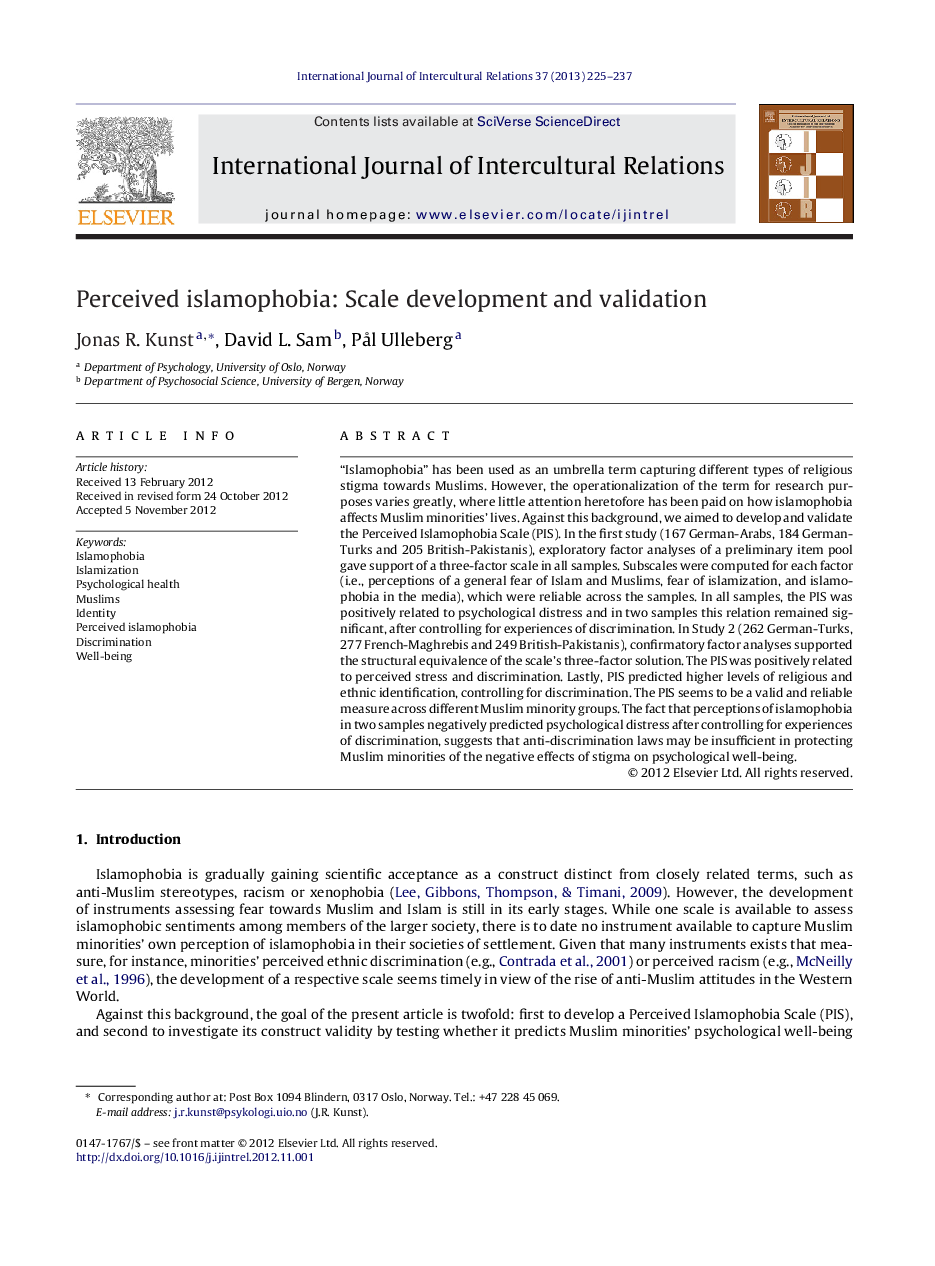| کد مقاله | کد نشریه | سال انتشار | مقاله انگلیسی | نسخه تمام متن |
|---|---|---|---|---|
| 947094 | 1475758 | 2013 | 13 صفحه PDF | دانلود رایگان |

“Islamophobia” has been used as an umbrella term capturing different types of religious stigma towards Muslims. However, the operationalization of the term for research purposes varies greatly, where little attention heretofore has been paid on how islamophobia affects Muslim minorities’ lives. Against this background, we aimed to develop and validate the Perceived Islamophobia Scale (PIS). In the first study (167 German-Arabs, 184 German-Turks and 205 British-Pakistanis), exploratory factor analyses of a preliminary item pool gave support of a three-factor scale in all samples. Subscales were computed for each factor (i.e., perceptions of a general fear of Islam and Muslims, fear of islamization, and islamophobia in the media), which were reliable across the samples. In all samples, the PIS was positively related to psychological distress and in two samples this relation remained significant, after controlling for experiences of discrimination. In Study 2 (262 German-Turks, 277 French-Maghrebis and 249 British-Pakistanis), confirmatory factor analyses supported the structural equivalence of the scale's three-factor solution. The PIS was positively related to perceived stress and discrimination. Lastly, PIS predicted higher levels of religious and ethnic identification, controlling for discrimination. The PIS seems to be a valid and reliable measure across different Muslim minority groups. The fact that perceptions of islamophobia in two samples negatively predicted psychological distress after controlling for experiences of discrimination, suggests that anti-discrimination laws may be insufficient in protecting Muslim minorities of the negative effects of stigma on psychological well-being.
► We develop and validate the Perceived Islamophobia Scale (PIS).
► The scale measures perceptions of societal islamophobia among Muslim minorities.
► Three subscales: general fear, fear of islamization and islamophobia in the media.
► PIS positively relates to psychological distress, stress and discrimination.
► PIS is positively related to Muslim participants’ ethnic and religious identities.
► The scale seems to be a reliable and valid measure across cultural groups.
Journal: International Journal of Intercultural Relations - Volume 37, Issue 2, March 2013, Pages 225–237